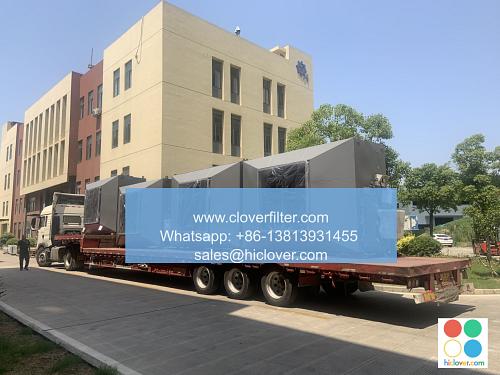The Impact of Air Filter Quality on Indoor Air Quality

The Importance of Air Filter Quality: Boosting Indoor Air Quality and Your Health
Clean air is essential for both our health and well-being. A key factor in maintaining air quality is the quality of air filters used in buildings. In this article, we will explore the impact of air filter quality on indoor air quality and highlight various application areas where its significance is vital.
The Dangers of Subpar Air Filter Quality
Poor air filter quality can have disastrous consequences on indoor air quality, leading to increased levels of pollutants and contaminants in the air we breathe. This is particularly concerning for people with respiratory issues, as these conditions can exacerbate symptoms.
Key pollutants to look out for:
- Particulate Matter (PM)
- Volatile Organic Compounds (VOCs)
- Bacteria
- Mold
- Viruses
- Respiratory problems: Exposure to low-quality air can lead to respiratory issues, such as asthma, bronchitis, and other breathing difficulties.
- Discomfort and fatigue: Poor air quality can cause headaches, lethargy, and general discomfort, impacting productivity and overall well-being.
- Increased risk of illness: Contaminated air can lead to illness and infection, particularly for vulnerable individuals, such as the elderly and those with compromised immune systems.
- Improved respiratory health: High-quality air filters can significantly reduce particulate matter and other airborne pollutants, alleviating respiratory issues and improving overall health.
- Better air circulation: Good air filters facilitate better air circulation, reducing stagnation and promote a healthier environment.
- Reduced energy consumption: High-efficiency air filters can reduce energy consumption by improving air handling unit (AHU) efficiency and decreasing the need for frequent replacements.
- Commercial Buildings: Offices, schools, hospitals, and shopping malls require high-quality air filters to maintain optimal indoor air quality.
- Residential Homes: Families with young children, the elderly, and those with pre-existing conditions benefit from high-quality air filters.
- Healthcare Facilities: Medical environments require specialized air filters to minimize the risk of infection and contamination.
- Industries with Particulate Matter: Manufacturing, mining, and construction sites require high-quality air filters to contain dust and particulate matter.
- Transportation Hubs: Airports, train stations, and bus terminals can benefit from high-quality air filters to ensure a healthy environment for passengers.
- Regularly clean and maintain air filters
- Consider replacing filters with HEPA (High-Efficiency Particulate Air) filters for superior performance
- Consult with professionals to determine the most suitable air filter for your specific needs
The Consequences of Low-Quality Air Filters
The Benefits of High-Quality Air Filters
Key Application Areas
In conclusion, the quality of air filters can have a profound impact on indoor air quality, our health, and our daily lives. It is essential to prioritize the use of high-quality air filters in various application areas, ensuring optimal air quality and a healthier environment for everyone. By doing so, we can create a healthier, more comfortable, and more productive space for all.
Additional Tips and Considerations:
By taking proactive steps to ensure high-quality air filters are used, we can significantly reduce the risk of health issues, improve indoor air quality, and create a more comfortable living and working environment.
I’m happy to help! What would you like to talk about or ask?

